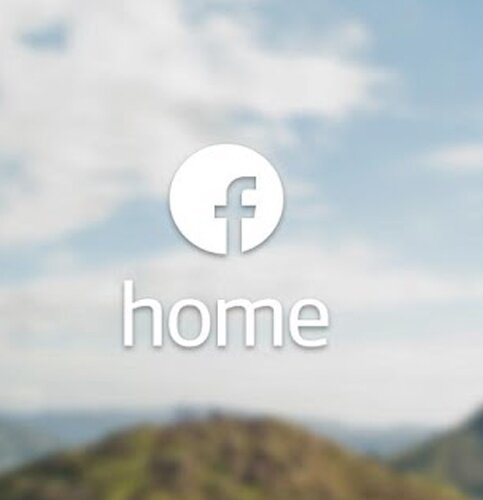
Facebook has been an integral part of the majority of our generation now. People use it to connect with their current and past friends and with the objective of making future ones too. Companies use it to advertise and promote their products and connect with their customers outside their stores and celebrities use it to broadcast information about themselves and amass more fans. It’s been a significantly effective element of the Internet in bringing people closer together.
The growth of Facebook has been staggering! Right now, 700 million users spend an average 30 minutes on Facebook. Last year they had their much touted IPO*, although since then its stock price has wildly fluctuated and is now $13 dollars below its original stock price. Last year, analysts claimed that Facebook’s growth had slowed down, and this has happened for two reasons:
-
Other rival social networks like Instagram (which Facebook now bought), Pinterest and Twitter rapidly grew, snatching attention away from Zuckerberg and Co, who kept revamping their website, and
-
Floundering on mobile, where data usage rapidly grew and Facebook made the mistake of thinking that mobile apps were just a fad.
In the new edition of Fortune magazine, Zuckerberg talks about how his original strategy of using his mobile apps as a conduit between a phone and the web tanked, partly because Google was attracting more users with their signature apps (Search, Maps, YouTube, Plus, Mail, literally everything on the web is on your phone. Or should be). The other reason was also that Facebook’s mobile apps sucked: they were slow, didn’t offer many features, and had (and still have) issues with advertising. That’s when Zuckerberg decided to go into overhaul and actually focus on doing mobile right. Over the last six months there had been speculation regarding a “Facebook phone”, and this snowballed when Facebook invited people to their Android event on April 4th (Mashable has collected a solid bunch of those rumors over the years). Instead what Facebook revealed was Facebook Home (introduced to International phones on April 18th).
Home isn’t the new Facebook app, that still exists, although I don’t know why. Home isn’t a replacement for Messenger either. What it is is a social interface laid over the phone’s interface so that you have Facebook with you 24/7. This initial version of Home provides three features: Cover Feed, Chat Heads, and an App Launcher. The Cover Feed is what you have on the web version, except here the photos are blown up and panned over Ken Burns style. You can double tap a photo or status to Like it. Chat Heads are simply the best feature of Home. They’re a condensed and faster version of Messenger where individual chats are reduced to an icon of the person you’re chatting with that remains on the screen no matter what app you have open. You can also dispose of these Chat Heads by swiping them off the screen (downward). App Launcher is basically an excuse for Home to act as an Android Launcher (a la Nova Launcher and ADW Launcher) for your phone as a hub where you can open all your apps from. It’s a feature that won’t necessarily get used simply because Home is still in its infancy.
Overall, Home is a very interesting concept and something that heralds a new era of Facebook on mobile devices. I love the possibilities that it suggests as an Android Launcher fully integrated to allow people to connect with their friends in a more seamless way than an application can. Chat Heads is a pure example of this seamlessness: it doesn’t require you to switch between apps and wait for messages to load, it’s that fast (And Home never crashed when I used it). It also doubles as your lock screen when you have it running and remains your lock screen until you disable it in its Settings (I was a tad irritated by seeing the faces of my Facebook Friends, but that’s the inherent problem with Facebook, not Home).
But Home isn’t all pure awesomeness. The core features of Facebook- posting statuses, uploading photos, and checking in, are present in Home, but when selected they redirect you to the Facebook app, which we’ve all established is where social networking goes to die. Home has been exclusively packaged with HTC First, and what this means is that HTC First users get some exclusive features the rest of us Android users don’t have: it integrates with the rest of the phone and notifies users whether they’ve received missed calls, SMSes and reminds them of appointments. That level of integration is important for Facebook as a launcher, not just as a surface social layer laid over the other applications in the phone. But there isn’t a Widget Launcher, something which other users have complained about. What’s the point of sticking with Facebook when you lose out on the other features of the awesome Android OS?
After less than 48 hours of using Home, I might have already gotten bored of it because it just doesn’t possess the kind of user engagement that it should have had in its first iteration. The inherent risk here is that if Facebook decides to introduce several excellent features in Home, imagine Home connecting with your Maps to show you where your Friends checked in last. But wait! That requires Facebook and Google to be friends. And also, the reviews of Facebook Home aren’t spectacular by any means. Part of me believes that Facebook pulled off this move just to show off its latest idea without actually building it to a point where people lovingly embrace it. Home is a premature baby (or a super polished alpha version) that needs to be put back into the oven before it can actually be embraced by all of us.
Overall I have to say that Home is a peek into the future of Facebook where, much like Google, it starts integrating itself more and more into our social lives beyond the web and constantly reminding us about the people we love, might love, like, dislike, hate or don’t care for. It’s a small step in the right direction, but I would have preferred a giant leap. Try it, then forget it (until next month, when it’ll get a rumored major update).
This review was written based on Facebook Home running on the HTC One X, with Android 4.1 Jelly Bean.
Note: Is it possible that Facebook might have just pissed off its two major rivals, Google and Apple? Google because Facebook is trying to nudge them out of their own OS, and Apple because they haven’t got an iOS version of Home yet (although the reason for this is the Apple doesn’t allow any app to override its code. Be that as it may, they still lose out). For something as thin as Home, that’s a bold move to make.
*If you tried watching any news channel on that day, you would have been met with sweaty anchors hyperventilating with speculation over what this IPO would mean for Facebook, and going through the step-by-step process that included underwriting, cutting a ribbon at the Facebook Headquarters in Palo Alto, and General Motors pulling out of advertising through Facebook. Yeah, I remember that stuff because it aired THE ENTIRE DAY!
First published here.



